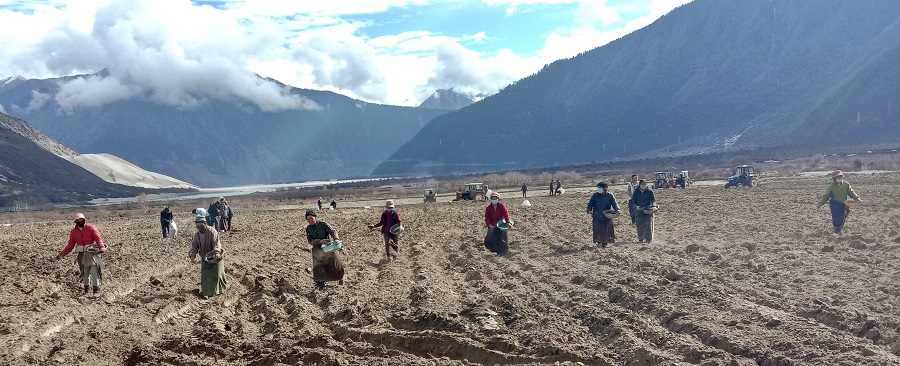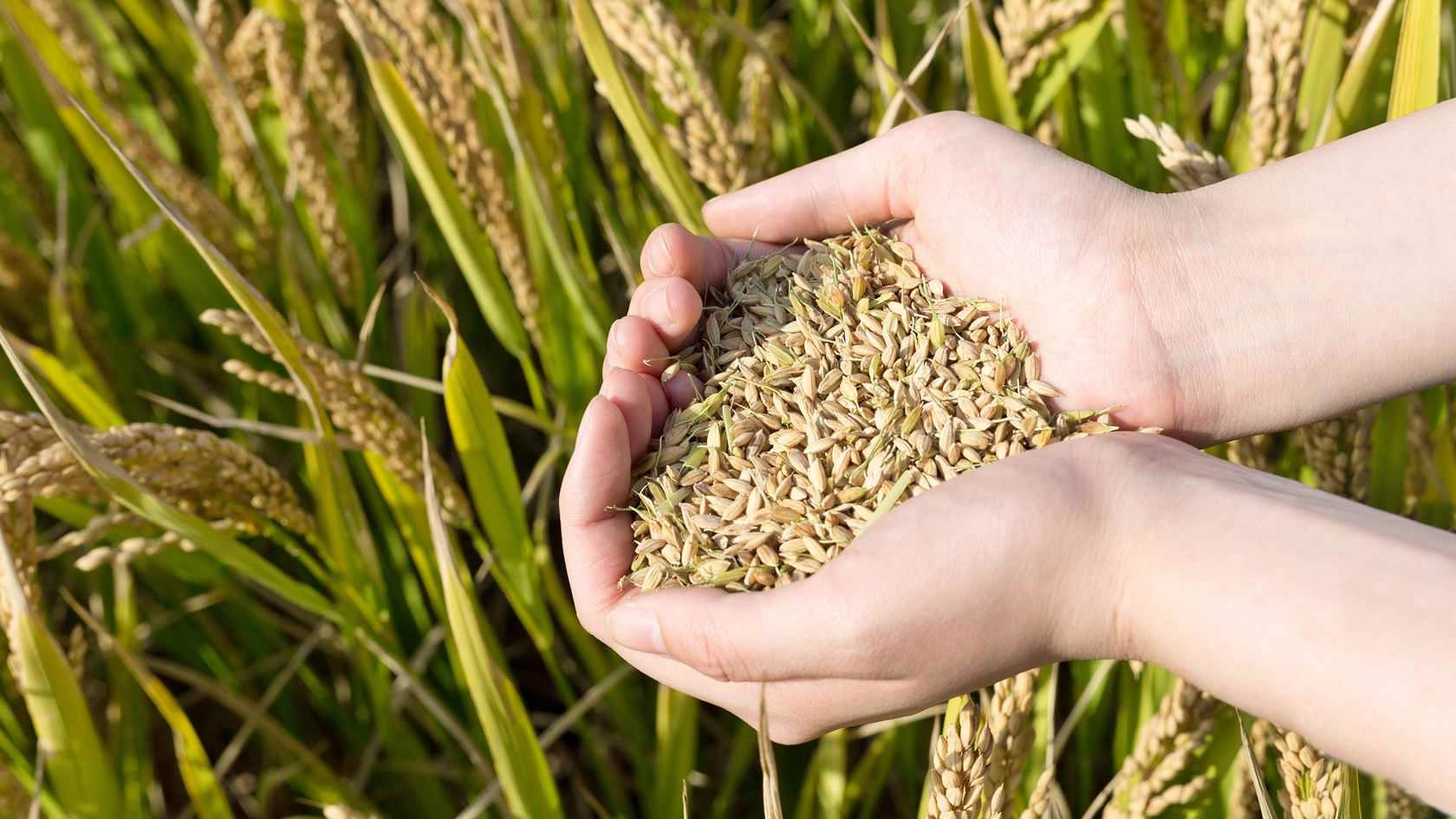
From the People's Daily App.
This is Story in the Story.
As temperatures in most parts of China quickly rise, spring agricultural activities are kicking off in many regions.
Villagers in Xierong village in Lhasa, Tibet Autonomous Region, attended a ceremony in mid-March to celebrate the beginning of this year's farming work by plowing fields and sowing seeds.
"This is our traditional ceremony to start this year's agricultural work and wish for a good year of harvests," said Konchok Tsering, deputy Party chief of the village, adding that they are preparing the land for growing highland barley, the major food crop in Tibet.
Konchok said that 125 villagers, 60 tractors, nine subsoilers and other machinery were present at the ceremony.
A video shows some villagers wearing holiday costumes using decorated machinery to plow the land while others gathered in celebration, singing and dancing.
Today’s Story in the Story looks at how agriculture has become an important part of China, with farmers making up about half of the population.

Farmers in Manling county, Tibet autonomous region, start their annual plowing work. (Photo: chinadaily.com.cn)
According to the Ministry of Agriculture and Rural Affairs, farming activities such as spring plowing, planting and fertilizing crops are being carried out gradually from south to north.
This year's grain output is expected to be stable above 650 million metric tons, it said.
For Hubei province, the ministry has organized several provinces and cities, including Shanghai, and the provinces of Jiangsu, Hebei, Shandong and Hunan, to help supply pesticides.
Hubei, the province hit hardest by the novel coronavirus epidemic, is short of insecticides for this spring's agricultural production.
Since early March, Hebei province has sent more than 200 tons of pesticides to Hubei, according to the bureau of agriculture and rural affairs of Hebei. More than 90 percent of its pesticide manufacturers have resumed production to guarantee agricultural supplies.
Other supplies, including seeds and fertilizers, have also been provided to Hubei to support its agricultural production.
Huizhou, Guangdong province, is entering the peak time for sowing and planting rice seedlings, influenced by this year's warm spring.
Huang Chungui, a farmer in Xin'gang village, Huizhou, will plant rice on more than 2.7 hectares of land this year.
"The land can yield more than 20,000 kilograms of rice around July," Huang was quoted as saying.
Agriculture is an important part of China, with farmers constituting almost half of the population.

(Photo: CGTN)
As the global demand for food rises, which some project would double from 2005 to 2050, Merrill Lynch strategist Beijia Ma said that raising farming efficiency would become more significant, as “there is only around 1.4 billion hectares remaining arable land globally.”
With the threat of climate change to agriculture, the demand for water, energy and food will rise by about 35 to 40 percent in the next 15 to 20 years, while 70 percent of water demand currently comes from agriculture and 80 percent of energy production is water-intensive, Ma said.
So, how can the agricultural sector develop sustainably?
From Ma’s perspective, investments in energy efficiency and renewables are important, while highlighting green bonds as an innovative solution.
Energy efficiency investments rose 8.5 percent in 2016 to reach $231 billion, Ma says.
China exhibits the fastest growth given strengthening energy efficiency policies. As for investment in renewables, Ma said that China is projected to account for one out of every three US dollars invested in renewables through 2040.
Implementing China's rural vitalization strategy, as well as upgrading the country's agricultural sector, would be the top priorities in the future, according to the Agriculture Ministry.
Experts also say that improving farming efficiency is the key to upgrading the sector.
(Produced by Nancy Yan Xu, Brian Lowe, Lance Crayon and Da Hang. Music by bensound.com. Text from China Daily and CGTN.)


